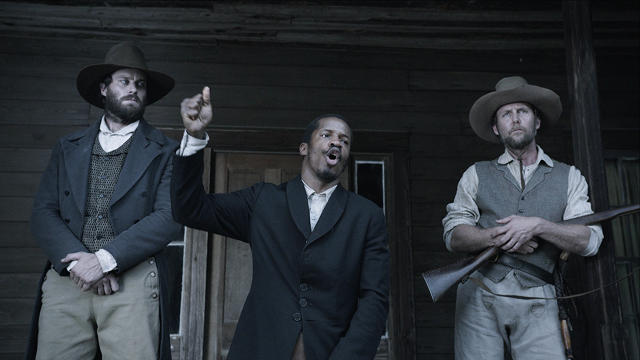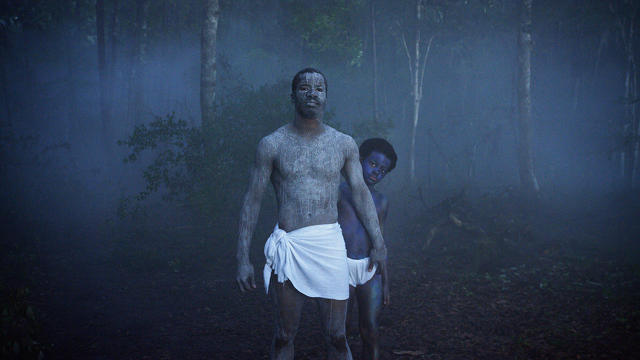Filmmaker Nate Parker turned down a $20 million from Netflix because he wants to “activate people” in movie theaters, not on couches.
If there is a recurring refrain at Sundance this year, it’s that streaming players like Amazon and Netflix are significantly shaking things up—or disrupting, as the jargon goes—at the annual film festival in Park City. If indie heroes like Harvey Weinstein and Bingham Ray once defined this annual ritual-slash-party-slash-cinéaste’s-dream, now it’s Roy Price, head of Amazon Studios, and Ted Sarandos, Netflix’s chief content officer (not to mention Reed Hastings, who was seen milling around at the HBO party last weekend), who are shuffling around in the snow signing deals.




Even before Sundance officially kicked off last Thursday, Amazon and Netflix were scooping up films in impressive pre-sales: Amazon nabbedComplete Unknown, a drama starring Rachel Weisz, for $2 million. Netflix, meanwhile, boughtthe dramedy Tallulah, starring Ellen Page and Allison Janney, for $5 million, as well as the Paul Rudd road movie The Fundamentals of Caring, for $7 million.
And that was just the beginning. The spending spree continued, with Amazon outbidding Fox and Universal for Kenneth Lonergan’s new film,Manchester by the Sea, for which it paid a whopping $10 million.
The presence of these new distributors has greatly reinvigorated Sundance—and other film festivals—which have been hurt by the struggling economics of the indie film market. Because people are watching films in their living rooms (or on their phones or Playstations), particularly small, independent films that don’t promise any white-knuckle thrill rides or spectacular effects best experienced in a theater, rare is the indie film that does robust box office business. (People still talk aboutLittle Miss Sunshine, a film that came out a decade ago, as the last, commercial Sundance hit.) As a result, buyers have understandably become more risk-averse. Streaming services like Netflix and Amazon, however, don’t worry about box office—they make their money on subscriptions—meaning they can roll the dice much more freely. They also weigh different factors, such as how a film is going to perform with international audiences—this is important to Netflix, especially, as it continues its global roll-out at a rapid pace. All the while, with their deep pockets and intense desire to grow their catalogue, prices are being driven skyward.

But Sundance’s biggest sale so far is an ironic throwback to all that. Early Tuesday morning, Fox Searchlight paid a jaw-dropping $17.5 million for Nate Parker’s film Birth of a Nation, about the 1830 slave rebellion led by Nat Turner. The film was a years-in-the-making passion project for Parker, who wrote, directed, and stars in the film. Its premiere screening ended in a rapturous standing ovation. Naturally, a bidding war ensued, involving everyone from Fox to Sony to Netflix, which offered the highest bid: $20 million.
So why didn’t Parker take Netflix’s money and run? According to sources familiar with Parker’s thinking, the filmmaker “wants to activate people” and “make them agents of change” through the course of seeing his film, which addresses our country’s deeply troubled history with race. “And he feels that the best way to motivate them is to have them experience it in the most emotionally charged setting.” In other words, in a theater, where dozens of people are crammed together watching a story unfold together and united—not on a couch, scrolling through their phone checking email or Twitter, or pausing to go make a sandwich. This, Parker feels, is the best way to “effect change and help our country begin to heal.”
The idea that an art film about slavery should be treated like an “event” film, in the way that special-effects bonanzas like Star Wars or Avatar are, is an intriguing new twist to the theater versus living room debate—one that has incredible resonance given the charged conversation taking place around race right now. It furthers the case made by purists like Steven Soderbergh that film isn’t just “content” to be consumed anywhere and everywhere, but is an art form that demands to be exhibited and consumed in a specific way. Netflix itself has made this argument, saying that there is room for both types of viewing experiences—at home and at the theater—but typically independent, or “intimate” films, have fallen into the former category.

Another advantage that Searchlight has over Netflix is a long track record of racking up Oscar nominations and wins. Although one source said that awards “were not a factor” in the deal, it was presumably not lost on Parker and his team—which was led by William Morris Endeavor—that in 2014 Searchlight steered 12 Years a Slave to Oscar gold. Netflix, meanwhile, is still an upstart in the awards world. Its rolled out aggressive campaigns for films likeVirunga (which received an Oscar nomination) and The Square, but its biggest hope so far—last fall’s Beasts of No Nation—was entirely shut out of the Oscar nominations this year.
If Parker’s intention was to start a conversation, he already has. Though it’s not just about race, it’s about a business in flux. The streaming services may be steamrolling in and providing homes for films that might not otherwise get them, not to mention throwing money around and rejuvenating an industry that was headed toward life support, but there is still a desire to do things the old-fashioned way. Now the challenge will be to get all those Netflix subscribers off their butts and into theaters.

